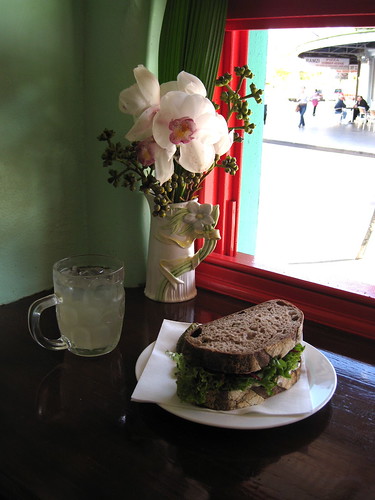Kevin McCloud. You know him - the strangely compelling, posh host of Grand Designs. He can usually be found pontificating about an over-budget, behind-schedule eco-glass mansion or applauding the painstaking restoration of a centuries-old abbey in the scottish highlands amid snow and rain.
His latest project finds him being criticised for indulging in "poverty porn". The new doco Slumming It sees McCloud enter, and live in (or at least attempt to) Dharavi, a massive slum in Mumbai. It's clear from the moment he arrives in pristine pink shirt and chinos, perfect posture and upper class accent it's going to be a fascinating journey.
He's received a lot of flack for it and well, it's pretty obvious why. There were so many moments of cultural insensitivity and just sheer colonialist hogwash... But as I was cringeing, I realised I was really cringeing at myself. If I were there, sleeping on the floor of a slum with a rat crawling on my bag, surrounded by four other people who don't have running water or a flushing toilet, I think I'd be saying and thinking some pretty intolerant/dumb stuff too.
He's also been accused of indulging the romantic idea of the 'noble savage' because in his most reflective moments he wonders at the happiness of the slum's residents despite their disadvantage. It's kind of trendy to be cynical about McCloud's reaction - oh how patronising of him. But seriously, his observations were coming from somewhere genuine. What he saw was community. Actual COMMUNE-ity. Community completely different to the Double-Income-No-Kids living in a glass mansion on the hillside kilometres away from the next human that he's usually dealing with.
He was blown away by the way people lived in such close proximity with eachother, and seemed genuinely happy, social and even enjoying their work despite the deplorable conditions.
But should it come as such a surprise that humans thrive in community? It's a historical anomaly that we live in a society where it's normal for nuclear families to define and defend their space so clearly, and in doing so, create a society of loneliness and alienation.
Ali posted a few quotes from Clive Hamilton's book Affluenza this week on her blog. This analysis of our "work/life balance" obsession seems to fit perfectly with what McCloud was alluding to:
Working long and irregular hours does not just cause accidents and make us sick and tired: it breaks down the bonds that hold our communities together … As well as stripping away the time people would generally have to devote to community activities, overwork seems to shape people’s mindsets in such a way that they feel their community is something they must protect themselves from rather than a resource from which they can draw and to which they can contribute. When hours become precious, people tend to hoard them …
As we feel our lives being eked away at work, we are less inclined to use our "leisure time" for spending time together. But the whole system does such damage. If depression is on the rise in our country, surely it's linked to this phenomenon of the loneliness of our indivdiualistic society. But we somehow convince ourselves what we need is more "me time".
Watching the people in Dharavi socialise as they go about their daily business (making pots, gathering water etc), there is no sense of "me time" vs "community time". It's all just life. And I think Kevin is not wrong to see this and want to pause and ponder its significance for a while.
I think it's really interesting that the reaction to the doco has been to judge McCloud. Sometimes it's easier to heap scorn on those who reveal the ugliness of our hearts with an "unacceptable" level of honesty, than to confront it.
Part Two of Slumming It shows on Tuesday at 8:30pm on ABC1.















